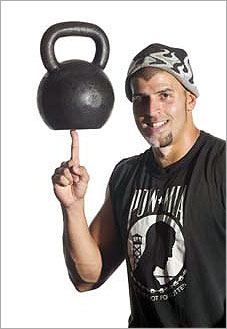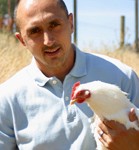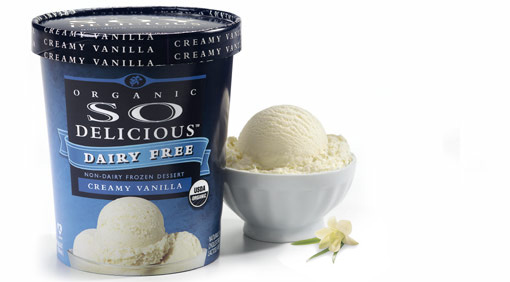Precision Nutrition.
Plant-based eating is undiscovered territory for most North Americans.
We’re used to tall glasses of moo juice, grilled chicken salads at restaurants, big omelets, and whey protein shakes. (And that’s the most nutritionally-conscious of us. Many folks still think vegetables mean French fries, or perhaps the anemic wisp of iceberg lettuce on a bacon cheeseburger.)
When folks decide to add more plants to be “healthier” or “more environmentally friendly”, that addition might include refined grains, processed soy, Twizzlers, and beer. While this kind of food swapping is usually better for animals, and — depending on how these pseudo-foods were produced — better for the planet, it might not be so good for our health and body composition.
This can lead to plant-based eating confusion. What’s “good”? What’s “healthy”? Whatreally benefits animals, the planet, and your wellbeing?
Luckily, more and more coaches and experts understand plant-based eating. I gathered some of the best and brightest to discuss the topic.
Our panel
 | Jon Hinds runs Monkey Bar Gym in Madison, WI. |
 | Nathane Jackson is an NSCA certified strength & conditioning coach and kettlebell trainer specialist in Toronto, Canada. Nathane is a pro fitness model, physique competitor, and fitness personality. |
 | Mike Mahler is a writer, strength trainer, and kettlebell instructor in Las Vegas, NV. |
 | Jack Norris is a Registered Dietitian and the President and co-founder of Vegan Outreach. |
 | Jeff Novick holds an MS and RD, is Vice President for Executive Health Exams International, lectures at the McDougall Program in Santa Rosa, California, and serves as an Adjunct Professor in the School of Health Sciences for Kaplan University. |
 | John Pierre is a nutrition and fitness consultant specializing in geriatrics, nutrition, fitness, women’s empowerment, green living, and cognitive retainment and improvement. |
Q. Why do some folks feel plant-based eating doesn't provide enough protein?
Jon Hinds: Because we learn that meat, milk, etc. are the “protein” foods. Don’t worry, plants have protein!
Jack Norris: Indeed, many people do not even know that plants contain any protein at all. How they think vegetarians survive is an interesting question!
Nathane Jackson: The bodybuilding influence has dominated most mainstream fitness magazines for decades. This approach tells us to consume large quantities of animal protein in order to build muscle. But we need to consider other issue in these extra-large physiques: performance enhancing drugs; mucus build-up from excessive animal protein consumption; and for the most part non-functional movement. The general public reads these magazines and get brainwashed into feeling like they require high levels of animal protein (and isolation exercises, but that’s a topic for another time).
John Pierre: Most people aren’t familiar with plant-based diets and the research supporting them. Look no further than athletes who eat plant-based. Eat properly, and you’ll get all the protein you need.
Mike Mahler: Fitness magazines often recommend 1-2 grams of protein per pound of bodyweight. As a result, people think they require a lot of protein.
However, I don’t think people need this much. Instead, 1 gram of protein per kilogram of bodyweight is a good starting point. Beyond this, you could add 30-40 grams each day if you are in a phase of intense training.
Using this approach, a 200 pound athlete would take in around 90 – 130 grams of protein each day, which can easily be achieved on a 100% plant-based diet. Building muscle and losing bodyfat comes from creating an optimal hormonal environment, not from over-consuming protein.
Plants have protein, and with a well-chosen diet you can get everything you need, even if you’re an athlete.
Q. Joe/Jane Meat Eater decides to start eating more plant-based. Where will Joe/Jane likely go wrong?
Hinds: Joe/Jane won’t eat enough nutritious foods, and then they’ll get tired, weak, and think plant-based eating isn’t for them.
Jackson: They’ll consume excessive amount of nuts, beans, and plant protein powders (neglecting fresh vegetables and fruits – the foundation of a nutrient rich eating plan). As an athlete I do consume plant protein powders such as Vega andSunwarrior, but I’ve seen folks use such products at every meal to adhere to the “meat-eating bodybuilding influence” of 30 grams of protein per meal.
Novick: Eating too many refined and processed “vegetarian” foods. The real benefit from “plant-based” comes when the diet is centered on whole unrefined/unprocessed fruits, vegetables, intact whole grains, and legumes with the addition of a few nuts/seeds.
Norris: When some people eat 100% plant-based, they also give up added fats (among other things). They end up with a very low fat diet and sometimes not feeling so great. They then go back to eating meat for the “protein,” not realizing that many types of meat are 50% or more fat. They feel better with the meat and chalk it up to the protein. Often it was really the added fat that made them feel better, not the protein; they could have gotten a similar effect by adding more fat to their plant-based diet.
The real benefit from ‘plant-based’ comes when the diet is centered on whole unrefined/unprocessed fruits, vegetables, intact whole grains, and legumes with the addition of a few nuts/seeds.
Mahler: Yes, fat consumption is generally too low or from poor sources. Or people eat excessive amounts of grains, like pasta, bread, cereal, etc. People need a balance of protein, healthy fats, and low glycemic carbohydrates at each meal from whole food sources.
And avoid “fake meat” products. These products are often loaded with garbage ingredients such as wheat gluten, soy protein isolate, tons of sodium, and other chemical derivatives.
Norris: On the other hand, plant-based diets can fall short on the amino acid lysine if someone is avoiding all legume-based foods. Legume-based foods include:
- tofu;
- tempeh;
- soymilk; and
- other soy products; peanuts; beans, lentils, and peas.
These foods are the highest in lysine. If you don’t eat any of these foods regularly (at least 2 servings per day – 1 serving typically being 1/2 cup cooked or 1 cup of soymilk), then you should make sure you’re getting plenty of servings of the few other high-lysine foods in the plant kingdom – quinoa, pistachios, and cashews.
Many folks simply eliminate meat from their diet, but don’t add in more healthy options. Or they go overboard with what they think are “healthy options”: processed foods, refined grains, and protein powders.
Fruits, veggies, nuts, seeds, and legumes should provide the foundation of a plant-based diet.
Q. Some folks are concerned with controlling carb intake and often get scared away from plant-based eating. What do you tell them?
CARB TYPE
Hinds: We’re told carbs are “bad,” so many folks resort to eating only meat and vegetables to lose body fat. “Carbs” in general aren’t the problem; it’s the source of the carbs that matters. Some plant-based eaters consume high amounts of processed carbs and end up looking/feeling like trash. This gives the plant-based eating population a bad rep.
Novick: Over 90% of the carbs consumed in America are highly refined, highly processed, and mostly in the form of refined flour and sugar. This is the problem. Avoid these.However, carbs in the form of fresh fruits, vegetables, starchy vegetables, intact whole grains and legumes are the healthiest foods for us, and should be the center of any healthy diet. This is a very important distinction.
Hinds: Eat strong plant foods like wild rice, sweet potatoes, millet, quinoa, amaranth, etc. These kinds of carb-dense foods aren’t causing body fat problems and disease.
CARB TIMING
Jackson: Consume the majority of your carbohydrate-dense foods (root vegetables and grains) earlier in the day and/or around workout times. If you work out in the evening, surround your workout with a combination of simple and complex carbohydrates to maximize workout potential and recovery.
Pierre: Yes, complex carb sources found in whole foods will help control insulin response; save simple carbs for after intense workouts.
Avoid processed carbs; look for better sources such as whole grains and tubers. Stay active, and consume most of your carbs around your workouts.
Q. Some folks want to gain muscle/strength and fuel high levels of performance. What do you suggest they do to get enough nutrient dense food each day?
Hinds: We have a guideline called the MBG Hand Plan: Eat only when hungry, eat only until satisfied, and drink lots of water.
- To lose fat, eat 2 meals and 3 snacks per day.
- To maintain body composition, consume 3 meals and 2 snacks per day.
- To gain muscle, eat 5 meals per day.
Make up these meals from nutrient dense foods like veggies, fruits, raw nuts and seeds, legumes and then grains (in that order). Eating like this consistently will lead to amazing results.
SMOOTHIES
Jackson: Try some meals in the form of smoothies and juices for easier digestion and assimilation.
Pierre: Add healthy fats like flax or walnuts. Add veggies to each meal, including your smoothie. And if you have protein anxiety, use a pea or brown rice protein (or a blend like Vega).
Mahler: I like Sun Warrior Rice Protein, Olympian Labs Pea Protein, and Manitoba Harvest Hemp Protein.I would also suggest adding coconut oil or coconut milk. Coconut is a great source of medium chain fats, which the body uses well. Coconut oil in a protein shake two hours before a workout will help to ensure that you have enough energy to crush it. Having a balance of protein, fat, and carbohydrates at each meal will balance energy levels throughout the day.
Norris: And possibly 3-5 grams of creatine if you’re doing explosive sports like power lifting or sprinting.
Eat a variety of nourishing foods. Eat in accordance with your appetite and goals. And make friends with your blender.
Q. Soy – any thoughts?
Pierre: Soy is a legume, it’s not mystical or magical. Don’t hide from it nor hold it above any other legume.
HOW MUCH?
Hinds: Soy’s received a lot of bad press. But really, in order to notice any negative effect, your intake of soy has to be huge! Occasional soy from whole food sources (tempeh, edamame, etc.) is no problem.
Novick: Soy is highly over-blown, over-hyped and over-promoted in the USA. In Southeast Asia, the average intake is about 2 oz a day, or the equivalent of about 7-9 grams of soy protein. Limit overall soy consumption. You can get all the benefits of soy from other beans without the potential health concerns.
WHAT ABOUT “FAKE-ON” OR “SOYLONEY”?
Hinds: When people first start transitioning to plant-based eating, using “fake soy meat” products is fine. Beyond that initial transition period I encourage folks to eat whole foods as much as possible, and not rely on these fake substitutes.
Jackson: Personally, I am not a fan of soy. However, people can get away with including non-GMO (genetically modified) soy products on occasion. But I do warn them about the potential health problems from eating fake products such as soy burgers, soy milk, and soy cheese.
Novick: Avoid all the highly processed forms of soy. Edamame = good; isolated soy protein = bad. Tempeh = good; soy energy bars = bad.
Mahler: Not all soy products are created equal. Fermented products, such as natto and tempeh, are absorbed more efficiently and don’t seem to block mineral absorption like other soy products.

- Still not really the healthiest choice.
WHAT TO WATCH FOR
Mahler: After the soy scare many years ago, a lot of research was done to see if soy does in fact lower testosterone and raise estrogen levels. The results are still inconclusive. The theory that phytoestrogens in soy lower testosterone has not been confirmed. This doesn’t mean that one should go crazy on soy as many people have soy sensitivities without realizing it, and you could develop sensitivities if high levels of soy are consumed each day. Soy can have negative effects on the thyroid, so anyone with thyroid issues should question their soy use.
Choose soy foods carefully and in moderation, if at all.
Dos and don’ts
If you’re considering moving towards a plant-based diet, or just want some more plant-based choices, here are the experts’ tips:
- DO choose your protein sources carefully.
- DO aim for about 1 gram of protein per kg of bodyweight; add 30-40 grams each day if you are in a phase of intense training.
- DON’T get your nutrition information from bodybuilding magazines. (May we recommend Precision Nutrition V3.0?)
- DON’T just cut things out without adding healthy alternatives in.
- DO get enough fat.
- DO eat a variety of whole foods, especially lots of vegetables and fruits.
- DON’T consume too many processed foods (including “healthy” protein powders and processed soy products).
- DO stay active.
- DO use your body’s hunger cues to guide you. If you want to lose fat, eat a little less than you’d normally want. If you want to gain mass, eat a little more.